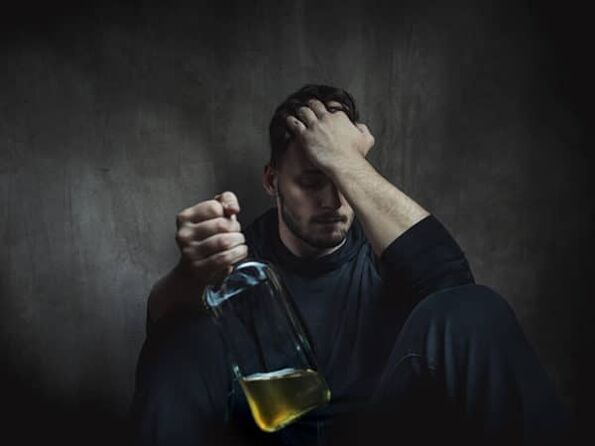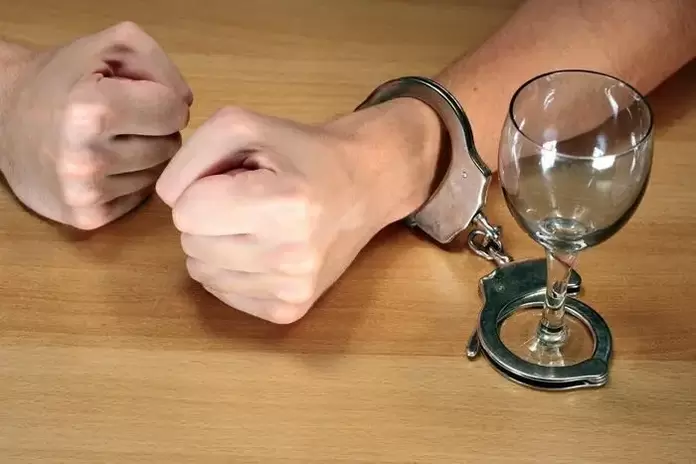If a loved one is an alcoholic, this is a serious problem for the whole family. Complicating matters is the fact that some people even go into regular drinking but do not consider themselves ill. How to help a person with alcoholism. Can a relative who drinks at home be cured. And most importantly, how to deal with the fact that the drunk denied alcohol dependence.
How to help an alcoholic stop drinking
The patient must first be aware that the disease exists and should be treated. You need to get rid of drunkenness. In this situation, motivation is the main driver. Even the existence of a large number of tools, opportunities and good conditions does not lead to the desired result if there is no goal and the right attitude.
Here are some basic steps you can take to reduce alcoholism:
- Acceptance of the disease. As soon as the alcoholic stops denying the existence of the addiction, it will be easier to undergo treatment and get rid of the disease quickly.
- Suppression of the desire to drink, control. We need to find an alternative instead of drinking. As soon as the idea arises to take another dose of alcohol, you should switch to some activity (running, reading, walking, etc. ).
- 2-3 contrast showers per day. It helps strengthen blood vessels, reduces cravings for alcohol.
- Drink plenty of water (at least 10 glasses of water a day).
- Renunciation of the old life. People and places attached to the alcoholic past should be avoided.
As soon as the patient starts drinking less alcohol, they should have a full body diagnosis. You can then switch to restorative activities (vitamin therapy, easy exercise, walking, etc. ).
How can we help a drinking person quit
There is no universal way to help. Every alcoholic will be different and everyone will have a different environment. But there are still some ways to fight addiction.
Treatment should be started with a blood-purifying drip. You can call a doctor who will perform all the necessary manipulations. The entire treatment process is then planned. The main thing is that the patient wants to be treated. A therapeutic regimen is then established. Or you need to change your approach to the problem if you don’t want to get rid of the addiction. The patient will need the help of loved ones at any stage, especially if they are not in the mood for treatment.
Key recommendations for alcoholic families:
- Moving a drinking relative to self-service. Sooner or later you will have to deal with cooking, washing and cleaning.
- Spend your free time as a hobby, forgetting about the loot made for the sake of your loved one.
- Don’t give in to alcohol-related issues, don’t give in to alcoholic provocations. You have to get used to the new situation in the family.
- He is not responsible for the actions of a drinking relative. You must resolve all claims, accusations, disputes on your own.
You can only help those who are waiting for this, open to change. You don’t have to dedicate your whole life to saving an alcoholic.
At home

At home, only the initial stages of alcoholism can be cured. Additional stages of the disease are associated with severe mental and physical disorders that require medical intervention.
It is important to follow the rules of home treatment:
- Decide for yourself to give up bad habits. Mandatory therapy is ineffective.
- Watch for complete peace, don’t stress that will cause failure.
- As much as possible, avoid reminders of past lives (drinking friends, places to drink).
- He gives up alcohol completely.
- Unite with loved ones against a common problem.
- Take the medicine prescribed by your doctor.
- Confirm the therapeutic effect of folk remedies.
Medicines should only be prescribed by a doctor. Self-medication can only aggravate the disease. Decoctions and infusions according to the prescriptions of alternative medicine enhance the positive effect and relieve the symptoms of the disease. They are most effective for poisoning with alcoholic decomposition products.
Unfortunately, according to statistics, it is not always possible to help an alcoholic at home. But there are still many positive results. The point is not to give up, follow all the instructions and take steps in the right direction.
Disadvantages of home treatment:
- high probability of failure;
- lack of treatment experience, professional psychological support;
- passivity, patient apathy, loss of motivation during long-term therapy.
In order to avoid negative consequences and serious complications, shame, confusion, prejudice and other obstacles must be overcome and yet a specialist must be consulted. And he already determines the severity of the disease, if necessary, recommends inpatient treatment, or approves home rehabilitation.
Stationary

Hospital treatment is anonymous. Therefore, you must not hide from problems, be ashamed of yourself. It is better to seek the help of professionals immediately: a narcologist, a psychiatrist, a psychotherapist, a family psychologist.
The right attitude towards treatment is especially important. Alcoholism is a chronic disease that does not go away completely. Only the willpower, the desire to change a life, helps a person to be in remission for a long time without returning to the aggravation of the disease.
Benefits of inpatient treatment:
- isolation from the effects of external negative factors;
- lack of access to alcoholic beverages;
- the possibility of a complete diagnosis;
- control of the treatment process, timely modifications if necessary;
- appropriate conditions, unlimited possibilities for complex therapy.
Serious cases of the disease are only treated in a hospital.
It breaks down more easily and quickly after leaving alcohol in a health care facility. The duration of treatment is at least 7 days.
Stages of therapy:
- Removal of toxins. The patient is prescribed drips, takes regular tests, and performs diagnostic procedures.
- Based on the results of the diagnosis, the narcologist builds a treatment program, involving the necessary professionals in the process.
- Medication, specialist consultation with the relatives of the patient.
- Follow-up of the patient after treatment.
The success of therapy lies in a series of measures. An anonymous hospital is the best place to do these.
How to help someone stop drinking if they don’t want to

Such patients themselves will never admit that they are having difficulty and, in fact, will not agree that they are addicted to alcohol. For treatment, such a refusal is a major barrier to recovery. If an alcoholic doesn’t want to be treated, even the most experienced professionals won’t help him. But even in this situation, there are ways to help the patient stop drinking:
| Method | Description of the method |
|---|---|
| Faith | It only works in the early stages of the disease. You need to talk directly to the person, explain what your behavior looks like from the outside (you can shoot a video, bring witnesses to a meeting). Evidence effectively affects the human psyche, it reflects on its actions. A good argument is reminiscent of how a hangover goes. With the example of a local downgraded alcoholic, you can show what to expect next year if you don’t stop drinking. Once an alcoholic agrees to the treatment, he or she should support him or her to consolidate the positive effect. |
| Jar of Hearts | An alcoholic is in a difficult position because of alcohol. As you try to solve it, you rethink your lifestyle. This situation is created by relatives and acquaintances. An expensive, cruel but effective method. For example, in a company, pour sleeping pills into alcohol, take the victim to the woods, pick up money, documents. Or while the drunk diverts his attention from friends, take the child away from him. |
| Medicines, folk remedies | If persuasion doesn’t help, you can add medications, herbal infusions to foods and drinks. The effect of these drugs is based on the appearance of aversion to alcohol. When combined with alcohol, such additives cause nausea, vomiting, changes in the taste of alcohol, and severe hangovers the next day. You should only use such medicines after consulting your doctor. |
| Calling wizards, wizards, healers | Herbal infusions, spells, rituals, and conspiracies are at the heart of the treatment of alternative medicine. This method should be used with caution as there are many charlatans in the area. In addition, such treatment is always expensive and often ineffective. |
| Intimidation | The threats can be different: losing or not finding a job, not getting home, not having to pay a loan. Psychologists say it is not the most successful method. This can have the opposite effect. To scare a drinking person with something, you need to know it well. |
How do you get an alcoholic to go for treatment? Key recommendations:
- Avoid conflict situations, criticism of the addicted person.
- Talk about your feelings about the situation, but don’t blame me.
- Help you find interesting alternative activities.
- Explain that the authority of the inner circles is lost.
- Motivate the patient with responsibility and love of life.
- Explain the importance of seeking professional help.
Belief in the power of your words, the success of your deeds, helps you achieve a positive result.































